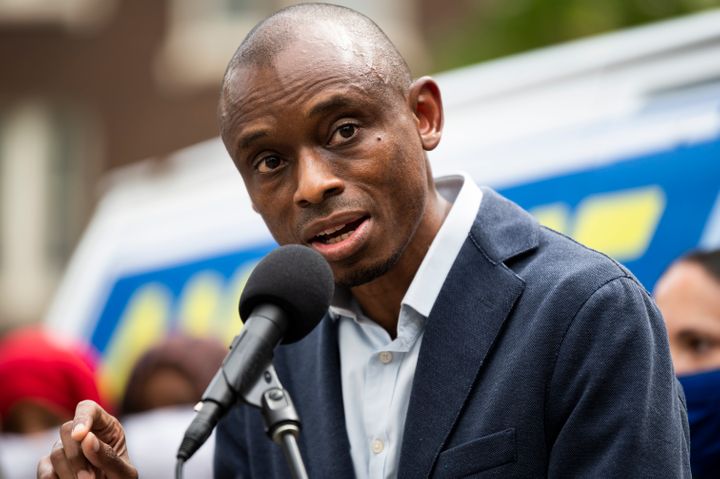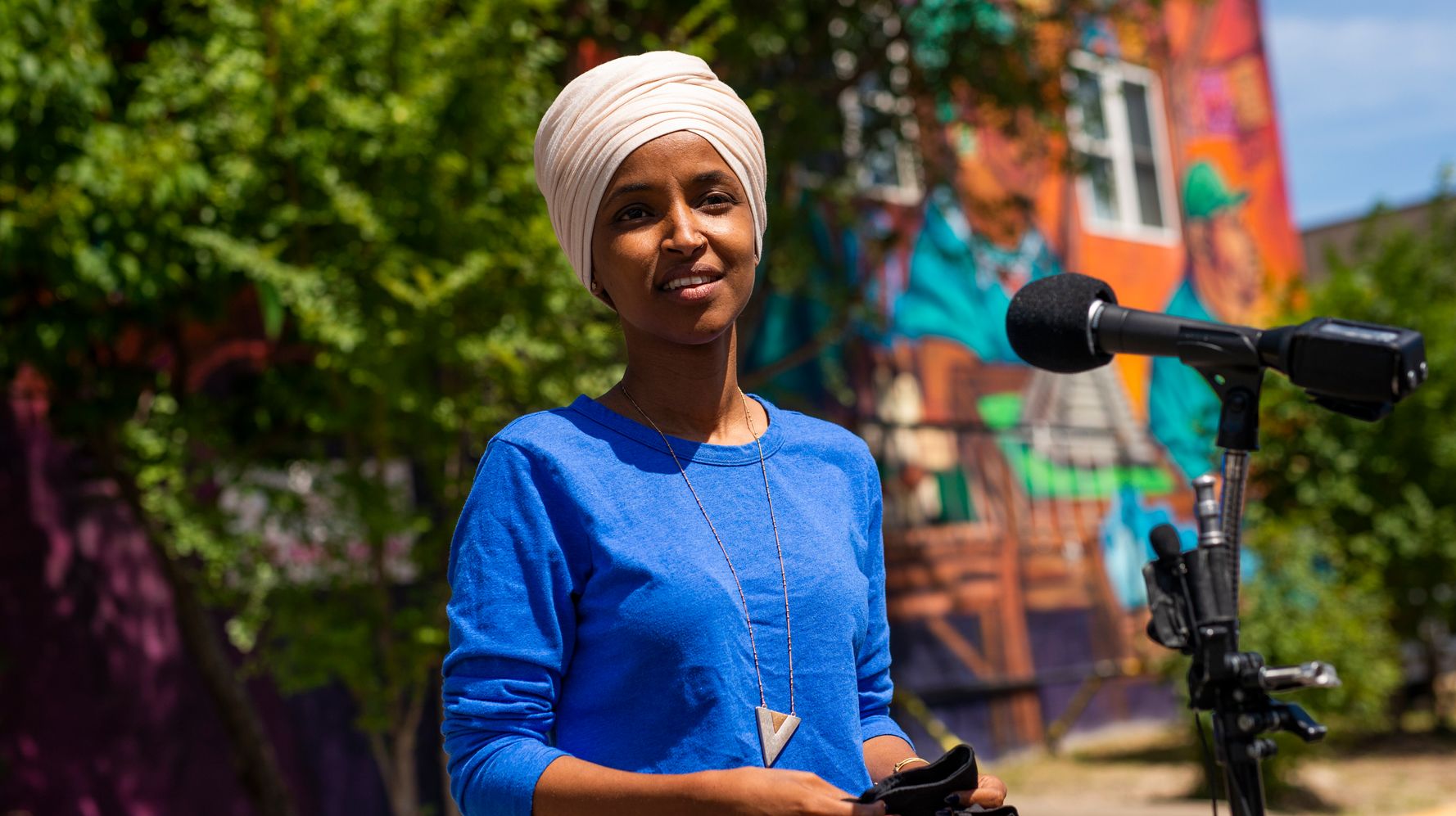[ad_1]
Rep. Ilhan Omar, one of the country’s most prominent and controversial progressive lawmakers, won the Democratic primary for Minnesota’s 5th Congressional District on Tuesday. In the overwhelmingly Democratic seat, Omar’s primary win all but officially confirms that she is returning to Washington.
Omar defeated employment attorney Antone Melton-Meaux, a more moderate liberal, who ran as an antidote to what he called Omar’s “divisive” legislative style.
With almost 99% of the votes counted, Omar led Melton-Meaux 57% to 39%. Turnout in the district far exceeded the number of people who voted in the 2018 primary, despite the absence of statewide candidates at the top of the ballot this cycle.
“If this election showed us anything, it’s the lengths that those seeking to uphold systems of oppression will go to stop a movement that wants to put power back in the hands of people,” Omar said in a statement. “But in Minnesota, we know that organized people will always beat organized money. Tonight, our movement didn’t just win. We earned a mandate for change.”
Her victory is another boost for the activist left ― and a disappointment for the conservative forces that had invested heavily in her ouster.
Omar “has an incredibly strong social media presence and a very, very powerful following among the millennials and other young voters,” said David Schultz, a political science professor at Hamline University in St. Paul. “She was able to get them out in sufficient numbers to win the primary.”
Voters are generally reluctant to throw out incumbents without a strong reason to do so. And as an incumbent, Omar had the complete support of Minnesota’s Democratic-Farmer-Labor Party and organized labor.
Both the DFL, which is the state’s Democratic Party, and Minnesota’s influential labor unions worked hard to discredit Melton-Meaux in the final weeks of the campaign.
Unions blasted Melton-Meaux for his tenure at the mega-law firm Jackson Lewis, which is notorious for helping big companies bust unions (Melton-Meaux denied working on any union-related cases while there). And the DFL filed a legal complaint against Melton-Meaux’s campaign for using shell companies to disguise the identities of campaign vendors.
“If she didn’t have that support, I would push her into the loss column,” Schultz said.
To hardcore progressives ― many of whom live in Minneapolis and its surrounding towns ― Omar is a heroic member of the “Squad” of progressive freshman House women.
A former refugee from Somalia who is now an American citizen, Omar is one of the first two Muslim women in Congress. The mere presence of a hijab-clad Black woman on Capitol Hill is strong enough to elicit a xenophobic outburst from President Donald Trump.
And as an unabashed progressive on virtually every policy question, she has used her seat on the House Foreign Affairs Committee to challenge the prevailing narrative in both major parties that the United States is an ever-righteous guardian of the global order.
It is easy to forget then that when Omar won a crowded primary to succeed then-Rep. Keith Ellison in August 2018, she received less than 50% of the vote.
Many moderate Democrats in a district that encompasses the city of Minneapolis, as well as its whiter and more affluent suburbs, were never pleased with her ascension.
Then, when Omar began her term in Congress by embracing the Boycott, Divestment and Sanctions movement against Israel, and making two insensitive comments that many Jews considered anti-Semitic, she made herself another set of committed and influential enemies. Her district is the historic heart of Minnesota’s Jewish community and many of that community’s members would become active in the effort to unseat her.

Thanks to the support of right-leaning pro-Israel donors, business leaders and moderate Democrats, Melton-Meaux matched Omar in fundraising in a matter of months. Two pro-Israel super PACs spent more than $2.5 million attacking Omar on the television airwaves and in direct-mail literature, while several left-leaning groups, including the Working Families Party, spent just under $200,000 on her behalf.
Rather than focus on Omar’s foreign policy views, however, Melton-Meaux spent much of his campaign arguing that Omar’s national fame had come at the expense of the district. He claimed that unlike Omar, who missed some votes during her first term, he would “focus on the 5th.”
But in a district so liberal that Sen. Bernie Sanders (I-Vt.) won there in the state’s Democratic presidential primary in March, Melton-Meaux’s money and locally oriented message were not enough to carry him over the finish line.
The populist idealism that Melton-Meaux denounced as impractical may have found its moment amid the COVID-19 pandemic and a concurrent national uproar over racist policing practices that began in Minneapolis.
Omar sought to channel the frustrations of a restless American public in her reelection bid.
“People are pouring out into the streets, fists held up high, calling for transformative change,” she says in a campaign video. “We can translate our cries for justice into legislation ― and that’s the fight we have been leading in Congress.”
Omar is now the third “Squad” member to fend off a primary challenge this cycle. Rep. Alexandria Ocasio-Cortez of New York handily dispatched with a well-funded challenger in June, and Rep. Rashida Tlaib defeated hers earlier this month. (Rep. Ayanna Pressley of Massachusetts is unopposed in her Sept. 1 primary.)
The four-person crew is set to welcome reinforcements in January. Reps.-elect Cori Bush of Missouri and Jamaal Bowman of New York unseated veteran incumbents this cycle based on similar ideological platforms.
Calling all HuffPost superfans!
Sign up for membership to become a founding member and help shape HuffPost’s next chapter
[ad_2]
Source link

